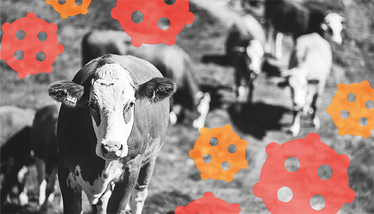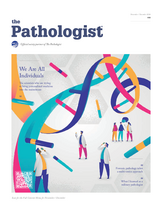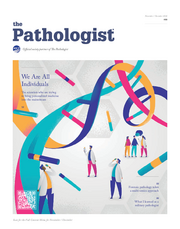What’s Going on in Infectious Disease
Catching up with ID research news from across the globe…
Jessica Allerton | | 3 min read | News

Credit: Unsplash.com
A continuation of COVID-19
A Brazilian study recently aimed to learn more about the long term effects of COVID-19, assessing 237 patients who were intubated after being infected over two years ago (PMID: 38680501). By exploring the evolution of pulmonary abnormalities in this cohort of post-COVID-19 patients, researchers found that 92 percent of patients had alterations in their lungs in both follow-up appointments. Of these, 58 percent exhibited inflammation and 33 percent had fibrosis. The authors confirmed that “a consolidation of lung permanent sequelae predictors will guide future clinical decisions and shape the strategy for the long-term management”.
Anti-CRISPR analysis
Researchers at the University of Otago dive into the microscopic race against harmful bacteria-infecting viruses in an attempt to increase knowledge and push innovation (PMID: 38987591). By analyzing protein phages with anti-CRISPR technology, the team discovered that the HTH domain of the protein regulates the anti-CRISPR production through two mechanisms: DNA binding and a newly discovered mechanism of binding the messenger RNA. Unraveling this unexpectedly complex regulation has the potential to change the way we view the function of proteins and gene regulation – increasing opportunities for antibiotic alternatives.
H5N1 cattle crisis
Highly pathogenic H5N1 avian influenza virus is known to occasionally infect – but doesn’t transmit – in mammals. However, as strains of H5N1 continue to circulate amongst dairy cattle in North America, researchers conducted a set of experiments to see if there’s a risk of transmission to humans (PMID: 38977017). Using ferret and mouse models, the team found that the virus spread from mothers to their pups through infected milk. These findings suggest potential risks in consuming unpasteurized milk from cattle, but further monitoring is required to learn more about the virus's movement and evolution.
Infected inks
It is well known that looking after a tattoo or piercing is crucial in preventing infection, but a recent study has identified aerobic and anaerobic bacteria within tattoo and permanent makeup inks readily available on the US market (PMID: 38953654). Seventy-five tattoo and PMU inks from 14 different manufacturers were analyzed through RNA gene sequencing, showing 26 contaminated samples in unopened and sealed inks. Both types of bacteria were present in the samples, emphasizing the importance of regular monitoring of related products for both aerobic and anaerobic bacteria.
Plague problems
Ancient DNA from 5,000 year old bones and teeth links the 14th Century plague to the Stone Age population collapse (PMID: 38987589).
HBV bedtime
Researchers identify a “sleep timer” in liver blood cells that switches off immune cells – opening avenues in immunotherapies for chronic hepatitis B (PMID: 38987588).
Reverse, reverse
Researchers find two cellular defects that cause harmful immune response in lupus – suggesting reversing these defects could lead to a potential cure for the disease (PMID: 38987586).
Tracking viruses
Researchers combine genomic data and human travel patterns over 14 years in South Africa to reveal key insights of the spread, evolution, and resistance of Streptococcus pneumoniae globally (PMID: 38961295).
Deputy Editor, The Pathologist




















